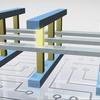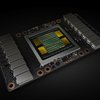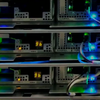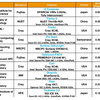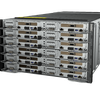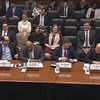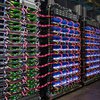The US Department of Energy (DOE) has announced a Request for Proposals (RFP) to develop at least two new exascale supercomputers for the DOE at a cost of up to $1.8 billion. The RFP was issued under the moniker of CORAL-2, representing the second phase of procurements for exascale machinery for Oak Ridge, Argonne, and Lawrence Livermore national labs.
The last 18 months have seen NVMe drives rise to the forefront of high-performance storage technology, becoming the preferred option for anyone with sufficient budget to include them in their procurement. Only a paucity of PCI lanes and the unfortunately timed spike in NAND prices have tempered the growth in these high-end storage sales. But both are temporary problems.
NVIDIA kicked off this years GPU Technology Conference (GTC 2018) with a trio of announcements about new Tesla products, including an upgraded V100, an NVLink switch, and a new DGX-2 machine learning platform.
The prospects for OpenPower got a big boost this week, with the announcement that Google has deployed Power9 servers in its datacenters. That revelation was joined by the news that Tencent, PayPal, Uber, Alibaba, and LimeLight Networks are all adopting Power-based technology to support their various businesses. The announcements were made at the OpenPower Summit taking place in Las Vegas, Nevada.
After just three years in the field, the High Performance Gradients (HPCG) benchmark is emerging as the first viable new metric for the high performance computing crowd in decades. The latest HPCG list compiled last November shows 115 supercomputer entries spread across 16 countries.
Chinese-base tech giant Alibaba is challenging American cloud providers in Europe with an HPC service designed for users runninga variety of compute-intensive and data-intensive workloads. The company also unveiled a new cloud-based quantum computing platform.
Lenovo has unveiled the ThinkSystem SD650, a densely constructed, direct water cooled server aimed at the HPC market. Its first big test will come later this year when it's deployed in Germany's most powerful supercomputer, the SuperMUC-NG.
During Congressional testimony last week, Intel and NVIDIA proposed that the US government institute policies that would speed development of artificial intelligence. The testimony was submitted to the House Subcommittee on Information Technology, headed by Texas Congressman Will Hurd.
Closing the books on 2017, Cray announced one of the worst financial reports in recent memory, reporting a net loss of $133.8 million. It marks the first time since 2009 that the company went into the red and represents the second worst net loss in its history.
Google has announced a beta program to make its in-house Tensor Processing Units (TPUs) available to cloud customers, marking the first time a custom-built machine learning chip will be accessible to a wide array of users.


